Should I turn off a heat pump at night? No, and experts explain why the slow and low method will help you save on your energy bills
To turn off or keep on… that is the question

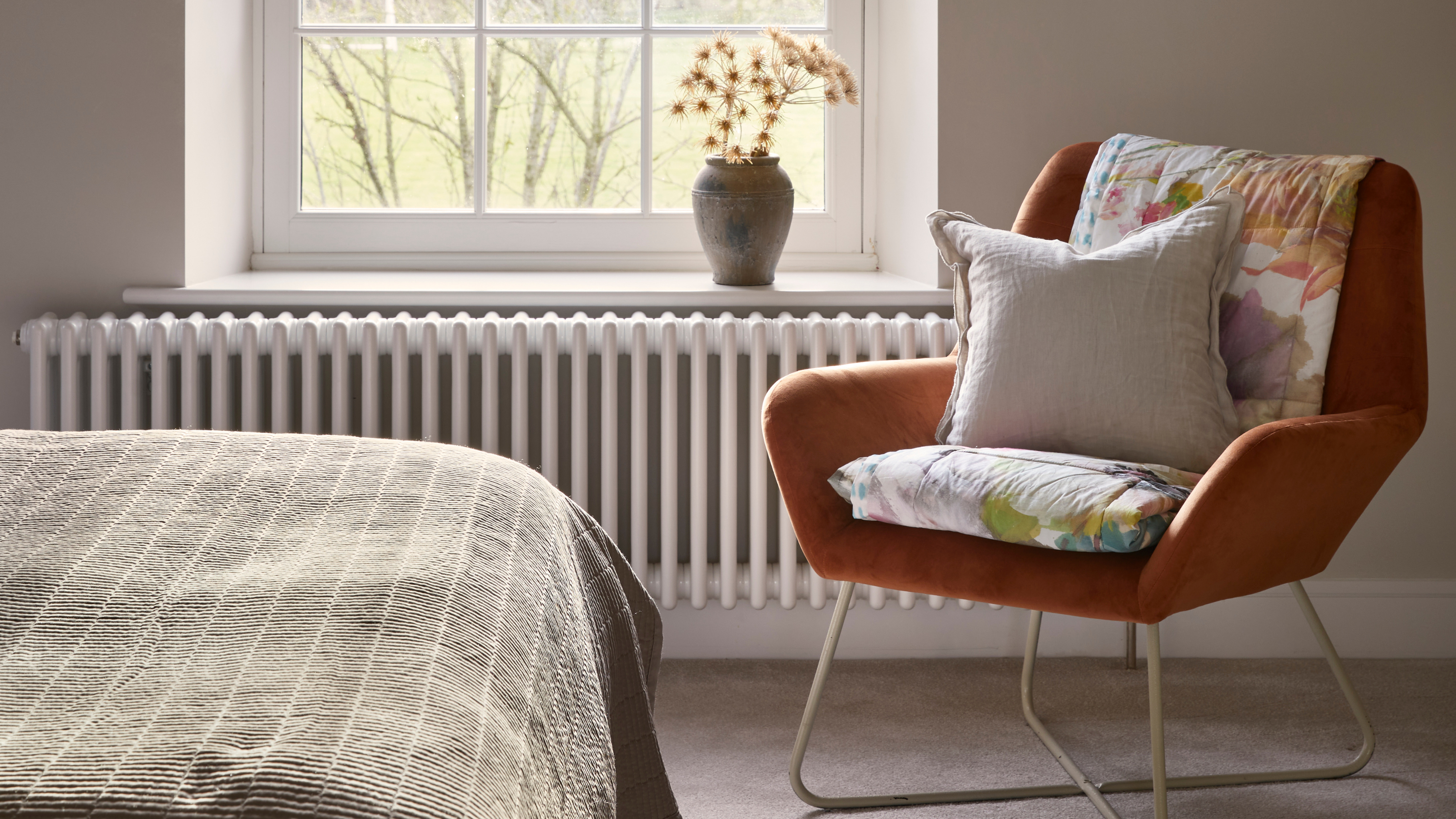
If you have a heat pump, you might already know that switching from a traditional gas boiler to an air or ground-source heat pump can be a real learning curve. It can take a while to learn the ins and outs of this eco-friendly heating system, and it can leave you with many questions, including whether you should turn off the heat pump at night.
In the heat pump vs gas boiler debate, heat pumps come out more efficient, cheaper to run and safer to use and maintain. And if your aim is to save energy at home and reduce your monthly bills amid high living costs, heat pumps are a great option. But while heat pumps come with many controls and settings to ensure you’re as comfortable as possible, knowing when and how to use them can be challenging.
As Hamid Salimi, Residential Property Manager at Daikin UK, explains, ‘A heat pump is typically three or four times as efficient as a gas boiler, which means you don’t have to buy so much energy. And that means lower energy bills for your home in the long term.’ But it turns out that turning a heat pump off at night can actually counteract the energy-saving capabilities of this eco-friendly heating system.
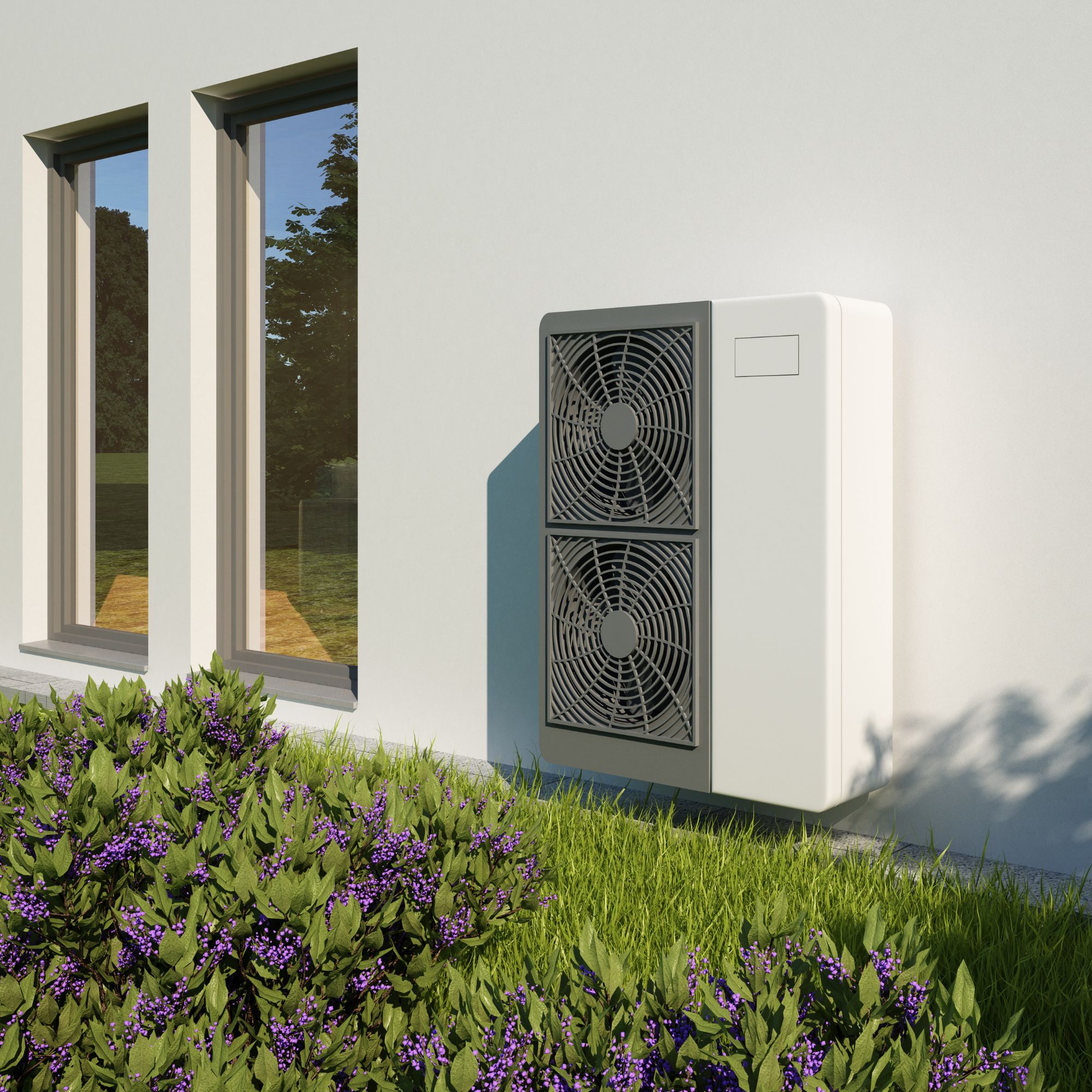
Do heat pumps need to be turned off at night?
No matter your heating source, it’s important to understand both the practical and safety implications of leaving it on overnight. After all, those with a gas boiler often turn off their central heating to save money, while those who use one of the best electric heaters may keep it on overnight - as long as they follow expert-approved safety precautions.
But what about heat pumps? Should you turn off a heat pump at night? According to Adam Raw, Co-Founder of Dwellow, ‘The short answer is no.’
He adds, ‘Heat pumps like running low and slow, and if you regularly turn the thermostat up and down, it will impact your energy efficiency (and bills) and shorten the life of the heat pump.’
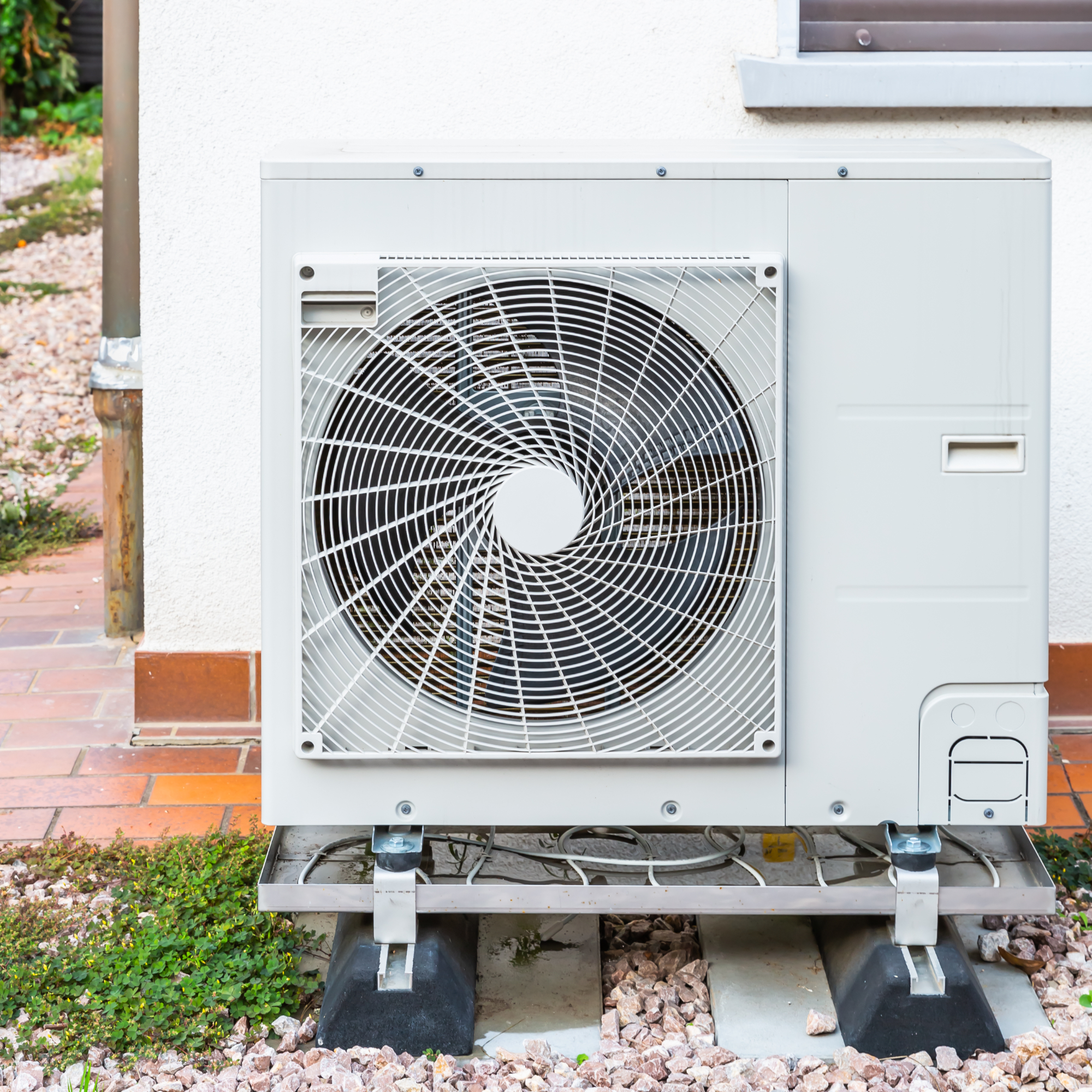
Of course, this counteracts one of the main positives of choosing a heat pump over a more traditional heating system, as the initial upfront cost of heat pumps can be extremely expensive. And while buying and installing an air source heat pump typically costs £8,000-15,000, it’ll save you money on your energy bills and pay for itself in the long run. So, if you shorten its lifespan, you also reduce your savings.
Sign up to our newsletter for style inspiration, real homes, project and garden advice and shopping know-how
But why does turning a heat pump off at night cost you more? Hamin explains, ‘Heat pumps work most efficiently when they’re kept at a steady temperature. Turning it off at night, for example, may use more energy than leaving it turned on, as it needs to work harder to get back to the set temperature in the morning.’
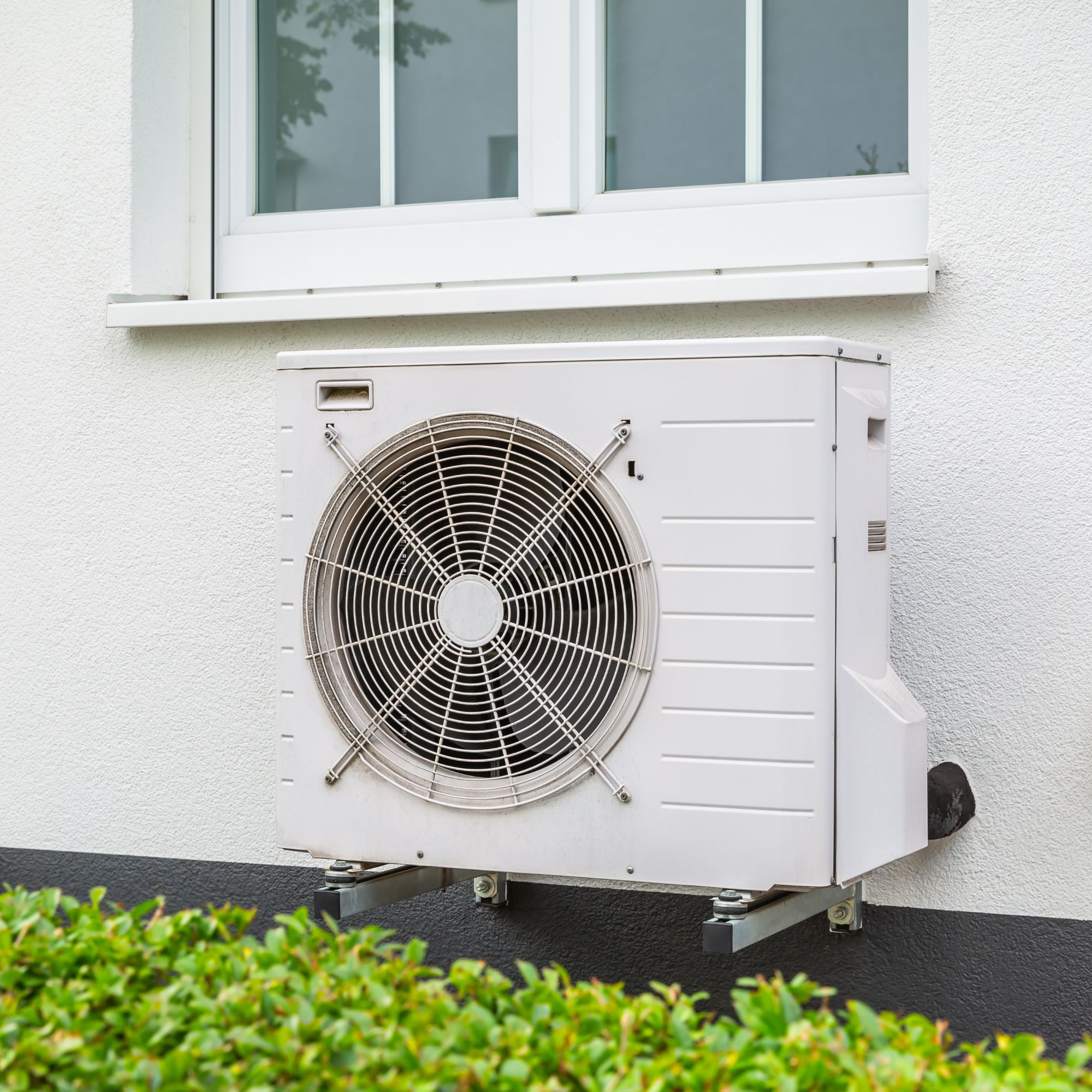
It can also help to understand how a heat pump works and how it is designed to work in an energy-efficient manner. ‘Heat pumps work by keeping rooms at a comfortable, consistent temperature,’ says Hamid.
‘They only turn on and use electricity when they need to heat up space or hot water. Heat pumps also modulate. This means that if less heat is required, instead of turning off completely, they can turn down the compressor operation to consume less energy,' he adds.
Because of this, there are no practical or financial reasons why you’d need to turn off your heat pump at night - unless you’re just not happy with your home's temperature.
Adam echoes this, saying, ‘If you really need to, you can set the temperature back a few degrees overnight, but don't switch your heating off completely. If you do switch off fully, your heat pump will have to work really hard to get heat back into your home.’
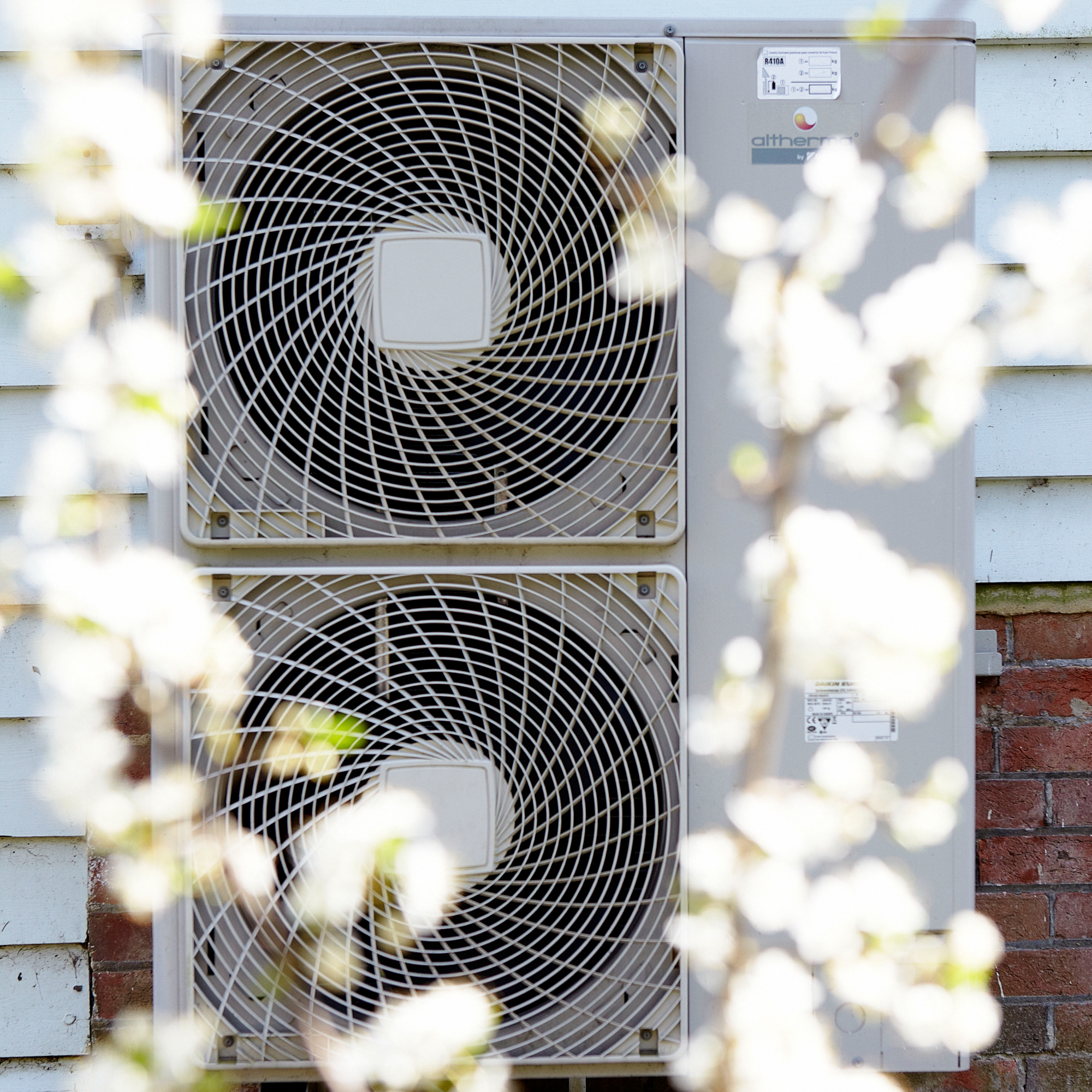
In fact, turning your heat pump down like this is called a ‘set back’ and something that experts advise you to do if you find the temperature too warm in the evenings or if you’re going on holiday.
But just as you shouldn’t turn your heat pump off at night, you also shouldn’t turn it off when you go away. Adam says, ‘Just like your fridge, it's really important to not turn off your heat pump at the switch if you go away on holiday particularly during the winter. They need to be on (even if not heating your home) to run cycles to stop pipes freezing. Some manufacturers have a holiday mode, so look out for those.’
FAQs
What is the most economical way to run a heat pump?
There are many ways to get the most out of your heat pump and ensure it runs efficiently and economically at all times. This includes:
- Keep it running low and slow at all times, and avoid turning it off.
- Make the most of programmable thermostats and settings to customise your heating system.
- Turn on holiday mode when you’re going away to avoid turning it off.
- Get your heat pump serviced regularly to ensure it’s in full working order and to maintain its longevity.
- Keep the outside heat pump unit clean and free of debris.
What is the downside to a heat pump?
One of the biggest downsides of heat pumps is the size of them. They’re rarely suitable for flats, and even houses require the space outside to install the heat pump unit. Alongside this, the cost of installation is extremely high - much more expensive than other heating systems out there.
However, heat pumps are so efficient that you won’t notice this initial outlay for too long. It’ll soon start to pay itself off and start saving you money on your energy bills. So, it’s well worth it if you have the money to install one.

Lauren Bradbury has been the Content Editor for the House Manual section since January 2025 but worked with the team as a freelancer for a year and a half before that. She graduated with a Bachelor’s degree in English and Creative Writing from the University of Chichester in 2016. Then, she dipped her toe into the world of content writing, primarily focusing on home content. After years of agency work, she decided to take the plunge and become a full-time freelancer for online publications, including Real Homes and Ideal Home, before taking on this permanent role. Now, she spends her days searching for the best decluttering and cleaning hacks and creating handy how-to guides for homeowners and renters alike, as well as testing vacuums as part of her role as the Ideal Home Certified Expert in Training on Vacuums, having spent over 110 hours testing different vacuum models to date!